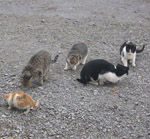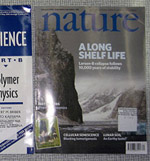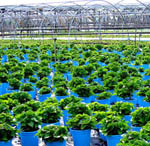Open space conference looks to the future of conservation
 Preservation,
Preservation,  Research
Research Last month, the Bay Area Open Space council (BAOSC) held their annual conference for member conservation groups working to protect and restore land in the San Francisco region. Being San Francisco-based, I attended the event and was able to catch up with conservation practitioners I worked side-by-side with for a number of years.
This year's conference, however, merits particular attention from conservationists well beyond the San Francisco Bay Area. Commemorating the group's 20th year anniversary, the conference presented a number of interesting speakers on the future of the land conservation movement.
This is fitting given that the BAOSC represents a region that has historically been at the forefront of conservation - from John Muir to the growth of the land trust movement.
Steve McCormick, former executive director of the Nature Conservancy and current president of the Gordon and Betty Moore Foundation gave the first presentation. He presented a vision for conservation in the 21st century that moves away from protecting areas strictly for preserving biodiversity and focuses more on protecting ecosystem services that meet society's needs.
This was a common theme from speakers throughout the day. For me the highlight of the conference was the presentation by Daphne Miller on the role of the outdoors in medicine.
As a physician and clinical professor in family and community medicine at University of San Francisco, California, Miller is an advocate of the healing properties of nature in general and outdoor recreation in particular. While the topic has received very little scientific attention, the few studies that have been done have shown that outdoor activities can have therapeutic effects on conditions like depression and high cholesterol, which mirror or surpass those of prescription drugs.
Coincidentally, another article appearing today on Conservation Maven is profiling a new study showing that nature increases feelings of vitality in people.
In her presentation, Miller discussed efforts to make this type of information more readily available to doctors and patients, so that physicians will increasingly prescribe nature as a treatment for medical conditions.
For me, these presentations and others from the BAOSC conference get at the most important issue that conservation faces in the 21st century: how do we make conservation an integral part of people's daily lives. Only then will we find sustainable, wide-scale success in the work that we do.
You can see the full list of speakers from the BAOSC Conference at their website where you can also download many of the presentations.
--by Rob Goldstein




Reader Comments